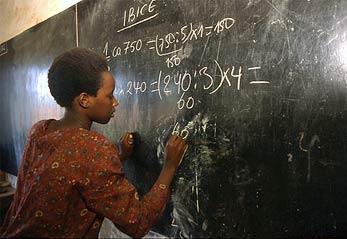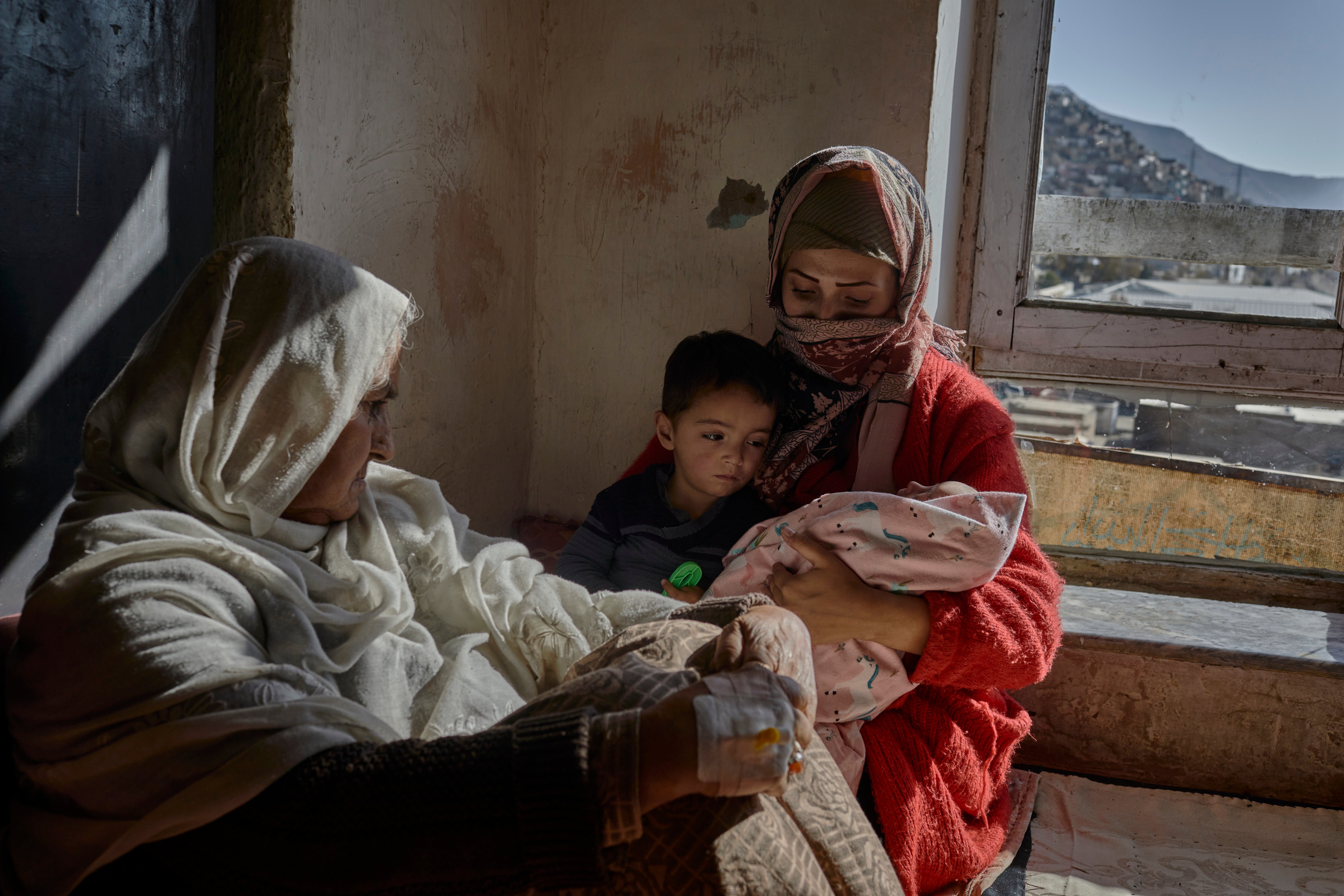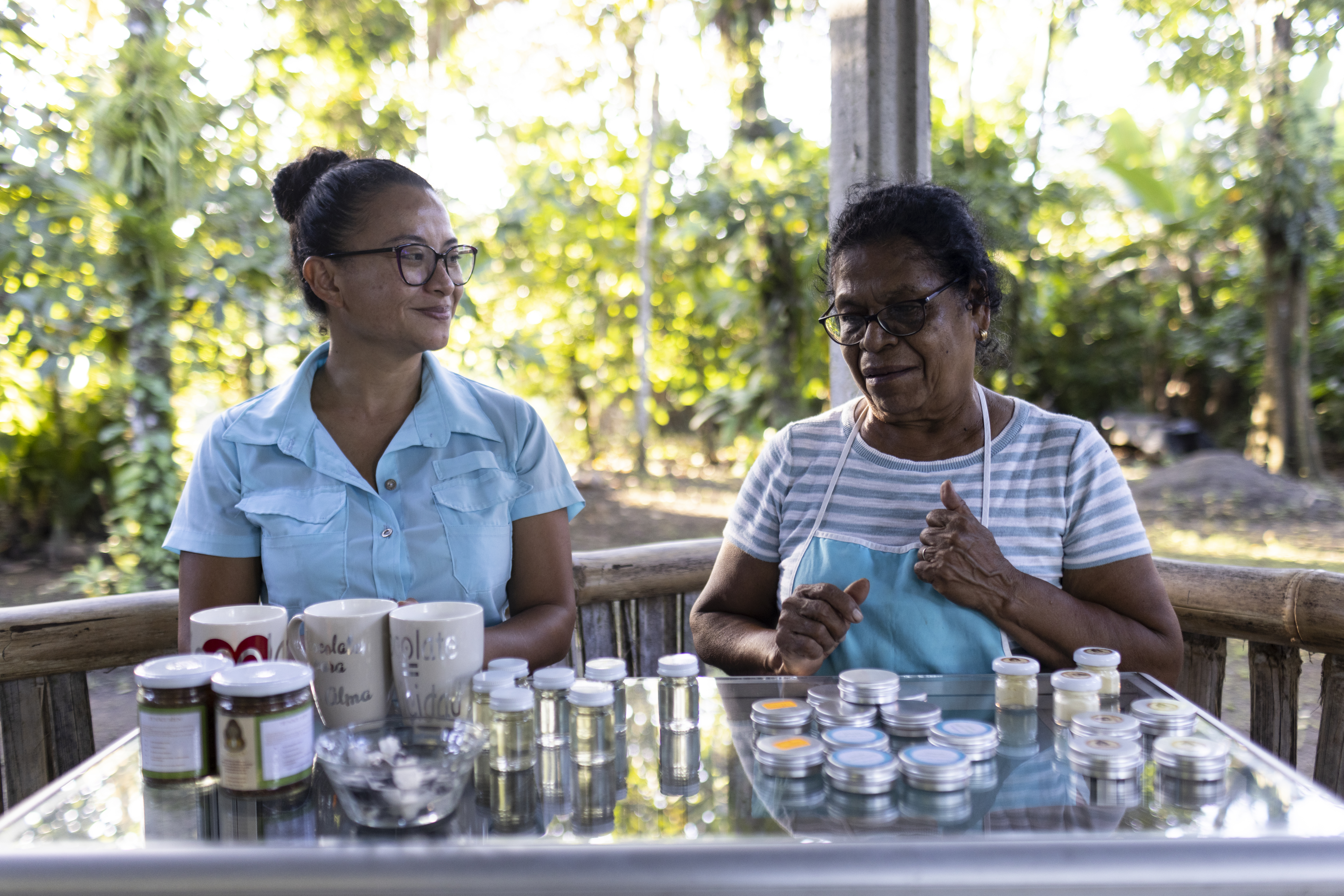Tanzanian camp steps up campaign to stop violence against women
Tanzanian camp steps up campaign to stop violence against women

LUGUFU CAMP, Tanzania, Nov 24 (UNHCR) - A year ago, Kiza Mpondamali, a middle-aged Congolese woman in Lugufu refugee camp in western Tanzania, led a spirited drive to fight discrimination against women and girls and to push parents to send their daughters to school.
Today, more than 90 percent of Lugufu's school-aged refugee children - girls and boys - attend schools in the camp.
Around the same time last year, Mpondamali joined another campaign to combat domestic violence. She and her team talked to the refugee community about the problem, encouraging women to report cases of domestic violence and to seek help from counsellors in the camp. More reports of wife abuse have subsequently emerged.
This year, Mpondamali and her team are standing firm to continue their battle on the eve of the International Day for the Elimination of Violence Against Women on November 25, which also marks the start of the annual "16 Days of Activism Against Gender Violence" campaign. This global campaign was started in 1991 to raise awareness about violence against women, and also encompasses World AIDS Day on December 1 and Human Rights Day on December 10.
In his message to mark the International Day for the Elimination of Violence Against Women, UN Secretary-General Kofi Annan has called on all sectors of society to "redouble their efforts to achieve the objective of ending all forms of violence against women." He noted, "It will require us to speak up, and to make clear that when it comes to violence against women, there are no grounds for tolerance and no tolerable excuses."
In Lugufu, the organisers of the 16-day campaign are planning to reach out to each of the 15 zones in the expansive camp that was set up in 1997 to give refuge to thousands of Congolese who had fled the conflict in the Kivu region of eastern Democratic Republic of the Congo. The current camp population numbers some 91,642 Congolese refugees.
To draw in the crowds, the organisers will use mobilisers, drummers and animators to spread their message to combat violence against women and girls. The mobilisers, among them dancers and drummers, will craft songs on the campaign theme while the camp's drama group will perform plays and skits to drive home the message.
Eighteen-year-old Pitie Mapenzi, a popular actor and comedian in the camp, is poised to join this year's campaign with his theatre group Young Negro, which performed many of the plays last year.
"I enjoy acting. Everywhere I go in the camp, people know me because of my acting," Mapenzi says in a mix of French and Kiswahili. "For the younger ones, I am like a role model."
Refugee girls, in particular, need more role models. In Lugufu, as in many other situations across Africa, school enrolment among girls declines steadily as they move into the higher grades. Many drop out of school to get married while others are kept at home by families who need them for domestic chores and to look after younger siblings.
Fifteen-year-old Tamasha Kilumba-lumba, who was the best student in Okapi primary school last year, describes how many of the girls in her class routinely missed school and when they did turn up, slept through the lessons. The seventh-grader laments that many of her peers are already married, some with children. In fact, she is the only one among her group of close friends who has yet to get married.
This year, Mpondamali and her team have dedicated their efforts to trying to keep refugee girls in school. "If a girl is absent from school, we follow up," she explains. "If she leaves school to get married, we talk with the girl and her parents."
The problem of early marriage and pregnancy continues to push many girls out of school. At the same time, there is a more general, systemic problem - while the school enrolment campaign has encouraged more refugee children, particularly girls, to attend school, the camp's schools cannot cope with the extra demand.
Lugufu's 13 primary schools provide education to 31,114 children - nearly half of them girls. Some schools, particularly in Lugufu II, have a student population equivalent to four medium-sized schools.
In a bid to cope with the large number of students, most of the schools have established a shift system: younger children are taught in the morning while the older ones attend afternoon sessions. Despite the staggered learning system, classes remain overcrowded, desks and benches are insufficient and the teacher-to-student ratio is 1:100, in some cases.
Likewise, the fight against domestic violence is an uphill climb. Although Mpondamali says the increase in reported cases of wife abuse is a good sign - "The community is prepared to acknowledge that there is a problem and are coming forward to report" - she notes, "To change [the behaviour of] an individual in an hour is difficult," referring to the often hour-long sessions held in dozens of venues in Lugufu camp during the two-week long period of activism last year.
The campaign however, continues well beyond this period. Throughout the year, other awareness-raising activities have been organised by the committee that was set up to educate the refugee community about prevention and response to sexual and gender-based violence.
This group is also working closely with the Education Co-ordinating Committee to sensitise the community to the challenge of keeping refugee girls in school.








